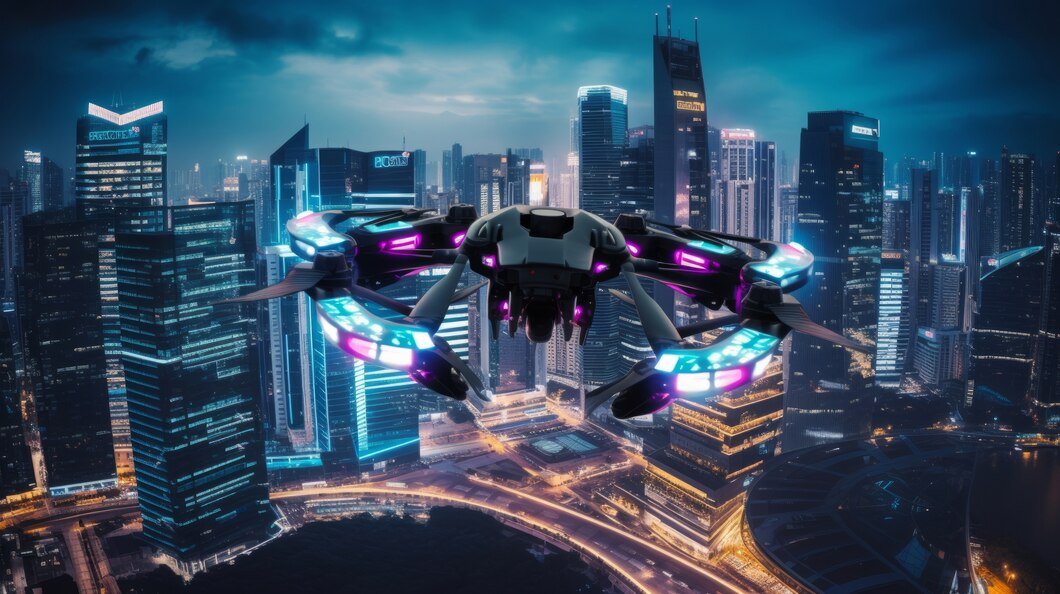Tech
Countering the Sky: The Rise of Anti-Drone Technology
Anti-Drone have become ubiquitous in both commercial and recreational uses over the past decade.

Drones have become ubiquitous in both commercial and recreational uses over the past decade. However, with increasing capabilities of drones also comes increasing security concerns about potential misuse.
As a result, the demand for anti-drone technology to securely monitor and defend restricted airspaces has risen in tandem. Coherent Market Insights explores the key capabilities, applications and outlook of this emerging industry in Anti-Drone Market.
Anti-Drone Technology
Anti-drone technology, also known as counter-drone or counter-UAS (Unmanned Aerial System) technology, refers to the various detection and mitigation systems designed to securely operate in airspaces where unauthorized or dangerous drones may pose safety or security risks. The primary objectives of anti-drone systems are detection, identification, tracking and neutralization of rogue or suspicious drones.
Based on their functioning, anti-drone systems can be broadly classified into detection systems and mitigation systems. Detection systems actively scan the airspace for electromagnetic signals or visual/thermal signatures of drones using radars, radio-frequency detectors or electro-optical/infrared cameras. Mitigation systems, on the other hand, are employed once a drone is positively identified as a threat. Common mitigation techniques include geo-fencing, signal jamming, collision, intercepting drones in flight or disabling their communications remotely.
Key Capabilities of Anti-Drone Technologies
The core capabilities sought by users of anti-drone systems include:
– Wide Area Surveillance: Detection systems must be able to constantly monitor large airspaces looking for drone signatures. Radar and RF technologies provide this capability with varied ranges.
– Drone Classification: Advanced systems can analyze sensor data to distinguish friendly drones from intruders based on characteristics like speed, direction, transmission signals etc.
– Tracking: Once detected, anti-drone solutions should continuously track a rogue drone’s position, direction and flight path in real-time.
– Mitigation at Range: The ability to safely disable or divert a threatening drone from distances of 1-3 km is critical for applications ranging from airports to prisons.
– Minimal Collateral Interference: With increased drone and air traffic densities, anti-drone techniques must minimize interference with friendly aircraft, transmission towers or electronic devices on ground.
– Rapid Deployment: For maximum effectiveness, anti-drone systems should be quick and easy to deploy in temporary restricted zones like wildfire sites or major events.
Some key use cases and applications of anti-drone technologies are:
Defending Critical Infrastructure
Energy plants, military bases, airports and government buildings are high value targets for malicious drone activities today. Long-range radar-based detection systems continuously monitor airspaces around such critical facilities, while radio frequency detection devices guard vulnerable perimeters. Once a suspicious intruder is identified, Radio Frequency Generator jammers or interceptor drones help effectively divert or disable the rogue drone from distances beyond visual range. Such integrated solutions provide 24x7x365 security against drone threats for infrastructure owners.
Ensuring Public Safety at Major Events
As seen during recent major incidents, rogue drone activities can severely endanger public safety at mass gatherings like sports events and political rallies. Temporary, rapidly deployable anti-drone systems are increasingly being used during such high-risk periods. Portable radio frequency detectors combined with drone interceptors or jamming equipment help establish secure aerial perimeters around event venues within a matter of hours. With their ability to detect and neutralize intruders from over 2 km, such solutions provide flexible, cost-effective security.
Tackling Border Security Challenges
International trafficking of contraband using recreational drones has emerged as a serious challenge for border security agencies across regions. Advanced counter-drone radars with automatic identification and tracking capabilities continuously monitor remote border areas for suspect drone flights. When detected, the radars alert secondary mitigation systems like radio frequency jammers or trained eagles which safely intercept payloads or force-land drones without harming operators on the other side. These integrated border security solutions help plug critical gaps in border surveillance networks.
Counter-Terrorism & Law Enforcement
Rogue drones pose a substantiated threat to security forces engaged in anti-terrorism missions and counter-insurgency operations across regions. Potent mitigation systems like hard-kill laser effector payload equipped mini-drones now provide tactical counter-drone capabilities to special forces even in the most difficult terrains. When integrated with ground sensor networks, these systems allow real-time detection and neutralization of suspicious drones from over 2.5 km, even in dense urban areas, ensuring safety of operations.
Market Outlook
Factors such as proliferation of recreational drones, evolving drone threats to critical infrastructure and growing budgets for homeland security across regions are expected to drive substantial investment into advanced counter-drone solutions. The Asia Pacific region is projected to emerge as the fastest growing regional market with heavy focus on securing national borders and expanding airports in countries such as China and India. As overall global drone market continues its upward trajectory, parallel demand for robust anti-drone systems ensuring airspace security and safety will keep rising as well.
Table of Contents
-

 Tech1 year ago
Tech1 year agoHow to Use a Temporary Number for WhatsApp
-

 Business2 years ago
Business2 years agoSepatuindonesia.com | Best Online Store in Indonesia
-

 Social Media2 years ago
Social Media2 years agoThe Best Methods to Download TikTok Videos Using SnapTik
-

 Technology2 years ago
Technology2 years agoTop High Paying Affiliate Programs
-

 Tech12 months ago
Tech12 months agoUnderstanding thejavasea.me Leaks Aio-TLP: A Comprehensive Guide
-

 FOOD1 year ago
FOOD1 year agoHow to Identify Pure Desi Ghee? Ultimate Guidelines for Purchasing Authentic Ghee Online
-

 Instagram3 years ago
Instagram3 years agoFree Instagram Auto Follower Without Login
-

 Instagram3 years ago
Instagram3 years agoFree Instagram Follower Without Login




















